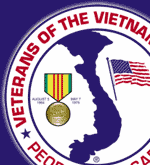




![]()
Post Traumatic Stress Disorder My life has been different since Iíve returned to the states. At first, I was just happy to be home and everything seemed to be ok. But now things have started to change. Now I dream about the things that happened while I was there, and I canít quit thinking about some of the things I saw. Itís on my mine all the time. At night I am frightened to fall to sleep because of the nightmares. The only way I am able to sleep is by taking a few drinks. I know this is wrong, but what am I to do? My wife and children seem to be frightened of me. I guess this is because I get angry at the smallest thing. I canít even keep a job because I get angry and quit or get fired. My family and I used to have fun. My wife and I used to go places together and we did things as a family. But now I just want to stay at home. Home, is the only place I feel safe. My family and friends donít understand whatís wrong and I canít explain it to them because I donít know. I donít know why I get nervous when I see a group of people clustered together. I just get this weird feeling in the pit of my stomach. I donít care if it is people on a street corner or people in a restaurant. The few times I have been out with my wife to a place like a restaurant I find myself setting with my back against the wall. I just feel more comfortable that way. When I drive I find myself watching every car I meet and every car that is setting at an intersection. Even if I am driving out of town on a highway I get very nervous when I see a cluster of buildings or a tree line in the distance. I once thought I was having a heart attack because my heart started to beat rapidly and my legs and arms became weak and all those butterflies were in my stomach. I only drive when I have to now; I let someone else drive if at all possible. This way I can watch everything going on around me. My wife says that I am becoming compulsive. I guess one of the reasons she said this is because I find myself getting up several times a night to check the doors and windows. I do this even though I know that I locked them. I do this because I just feel like I have to. I canít explain the feeling, itís just there. And now I have even got to the point that I keep a weapon near. At first it was just by my bed, but lately I have been carrying it in my car. This is dangerous, and I know itís wrong and eventually I will get in some kind of trouble. But I feel better when it is near. My family wants things to be like it was before and so do I. But I donít know what is wrong with me. So, what do I do? Where do I go for help? Who can I talk to? Many veterans and even some active duty personnel may be able to relate in some form or fashion to the above statement. If so, you may be having the symptoms and associated symptoms of a condition known as Post Traumatic Stress Disorder (PTSD). Introduction The following information was obtained from several different psychological texts. Since the reference materials are written for an individual who works in the mental health field I have changed some of the wording to insure that whoever reads this information will understand it. Definition Posttraumatic Stress Disorder (PTSD) is a psychological condition that reflects the development of characteristic symptoms following exposure to extremely devastating traumatic events. Basically, PTSD is a stress and anxiety disorder that occurs to an individual when the individual tries to react in a normal manner to an extreme abnormal event. Symptoms According to the definition of PTSD to qualify as having PTSD you must meet the following criteria.
Associated symptoms The above symptoms are basically direct symptoms of PTSD but there are many associated symptoms of PTSD. An individual can have PTSD without having any associated symptoms but in most cases, an individual will exhibit at least one or more of the associated symptoms. If you demonstrate any of the symptoms below and begin to seek treatment please make certain that the person initiating the treatment is aware that you have been involved in a traumatic event. If not informed, there is the possibility of acquiring the wrong diagnoses and the treatment for PTSD may be delayed. Below you will find a list of some of the more common associated symptoms of PTSD.
Additional Information PTSD is a very complicated condition and there are several forms of PTSD. PTSD can be either acute, chronic, or delayed-onset. Acute PTSD occurs within 3 months after a traumatic event. Chronic PTSD means that the symptoms that a person is demonstrating have been occurring for at least 3 months or longer. With delayed-onset PTSD, the symptoms occur anytime later than 6 months after the traumatic event took place. This can be 1 year, 20 years, or even 40 or 60 years after the traumatic event. Today, when you visit a PTSD clinic at the Veterans Administration you will find veterans from the WW II era up to and including veterans who have served in the current theaters of operations. As stated, PTSD is a complicated condition and research continues into the symptoms and associated symptoms. There is much to learn about PTSD and there are many things that can not be explained about PTSD. The mental health community has yet to explain why two individuals can be in the same place at the same time and experience the same traumatic event but yet, only one experiences the symptoms of PTSD. But there is one thing that the mental health community has realized. They know that if you are experiencing the symptoms of PTSD that it is imperative that you seek treatment as quick as possible. If you are a veteran of WWII, Korea, Vietnam, or one of the current theaters of operations or even still on active duty and are experiencing the symptoms of PTSD seek treatment NOW. After treatment the memories may remain, but the symptoms can be controlled. Treatment Information If you are a veteran who served in the theater of operations of Enduring Freedom, or Iraq Freedom you have the right to two free years of healthcare at the Veterans Administration after discharged. If you were in the Reserves or National Guard and were activated to serve in the same theater of operations or in support of Iraq Freedom or Enduring Freedom you have the right to two free years of healthcare at the Veterans Administration. This is true even if you never left the states but was activated in direct support. If you are a veteran of another era there is still the possibility that you can still obtain treatment for PTSD but do not linger. The VA is becoming very crowded and the doors are starting to close. And, the VA is the experts concerning combat related PTSD. Remember, PTSD can occur years after the traumatic event so if you have any symptoms that can relate to PTSD go now, even if the symptoms are slight. Once there is a file at the VA recording even these slight symptoms this will allow you to possibly obtain treatment at a later date if these symptoms become worse. Additional PTSD Resources Below we have listed contact numbers and additional links to other sources that relate to VA healthcare and PTSD. VA Benefits 1-800-827-1000 VA Health Care Benefits 1-877-222-8387 Main VA website https://www.va.gov Benefit link for Operations Enduring Freedom and Iraq Freedom https://www.vba.va.gov/EFIF National Center For PTSD war related link https://www.ncptsd.org/topics/war/html & https://www.ncptsd.org/index.html Waco VA PTSD Clinic https://www.texvet.com/PTSD/Residential.htm Facts for Health (PTSD Page): |
Veterans of the "An organization succeeds, not because it is long-established, |
